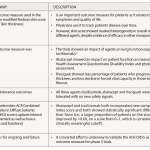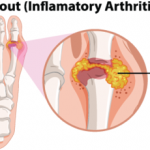In U.S. medical society boardrooms, far from legislative chambers, social conflict is forcing board members to deal with laws that raise issues of medical ethics. Take the Association of University Radiologists (AUR), a group of more than a thousand medical school radiology faculty whose stated mission is to “inspire and educate the academic radiology community.”…
U.S. Supreme Court Tosses Ruling Against Merck on Fosamax Osteoporosis Drug
WASHINGTON (Reuters)—On May 20, the U.S. Supreme Court threw out a lower court ruling that had revived hundreds of lawsuits accusing Merck & Co. of failing to properly warn patients of debilitating thigh-bone fractures as a result of taking its osteoporosis drug alendronic acid (Fosamax). The nine justices unanimously directed the Philadelphia-based 3rd U.S. Circuit…
Until Broadband Access Improves, Telemedicine Won’t Help Rural Communities
(Reuters Health)—Telemedicine has been touted as a solution to the dearth of doctors in rural America. But the same places where residents must drive many miles to see a physician often also have limited broadband access, a new study suggests. About 25% of Americans live in rural communities while a mere 10% of physicians practice…

Ixekizumab Promising for Non-Radiographic Axial SpA; Plus FDA Approves Belimumab for Pediatric Lupus
Results from a Phase 3 study showed ixekizumab significantly improved the signs and symptoms of non-radiographic axial spondyloarthritis in patients…
ACR Hill Visits Yield Key Bill Support; Plus Medicare, Biosimilar Wins
Greetings from Washington, D.C., where ACR leaders just held more than 100 meetings on Capitol Hill supporting reforms to step therapy and prior authorization, increased reimbursement for dual-energy X-ray absorptiometry (DXA), solutions to the rheumatology workforce shortage, and rheumatology-specific research at the Pentagon. We’re already hearing great news about our successes: Hours after our visit,…

Predictors of RA Flare After Total Joint Arthroplasty
At the time of total joint arthroplasty, RA disease activity has been shown to better predict postoperative flare than medication management…

Recent Trials Investigated Targeted Therapies for Systemic Sclerosis
SNOWMASS VILLAGE, COLO.—Data from three recent trials in systemic sclerosis (scleroderma) provide information on a number of important issues related to screening and treatment. First presented at the 2018 ACR/ARHP Annual Meeting, the phase 2/3 trials assessed the safety and efficacy of targeted agents to treat patients with systemic sclerosis.1-3 In a follow-up presentation at…

The ACR’s & EULAR’s Gout Guidelines Include Treatment Approaches
SNOWMASS VILLAGE, COLO.—The 2019 ACR Winter Rheumatology Symposium featured a session on gout. Despite a good understanding of its pathogenesis and the many effective therapies to treat it, gout remains a major public health problem in the U.S. Ann K. Rosenthal, MD, Will and Cava Ross professor of medicine and chief of the Division of…

Cardiovascular Risk in Rheumatoid Arthritis: Pathogenesis, Screening & Prevention
SNOWMASS VILLAGE, COLO.—Even in the era of treat to target, cardiovascular disease risk remains elevated and is a major source of mortality and morbidity in patients with rheumatoid arthritis (RA). Screening and management of cardiovascular risk in these patients is critical to ensure these patients are identified and treated. At the 2019 ACR Winter Rheumatology…

What It Takes to Become a Rheumatologist Then, Now & in the Future
CHICAGO—The ingredients required to make a rheumatologist have changed from the early years of the last century to now and are moving toward further transformation in the millennial-influenced future, according to Calvin Brown, MD, keynote speaker at the ACR’s 2019 Program Directors Conference. Dr. Brown, who trains medical students at Northwestern University Feinberg School of…
- « Previous Page
- 1
- …
- 289
- 290
- 291
- 292
- 293
- …
- 842
- Next Page »